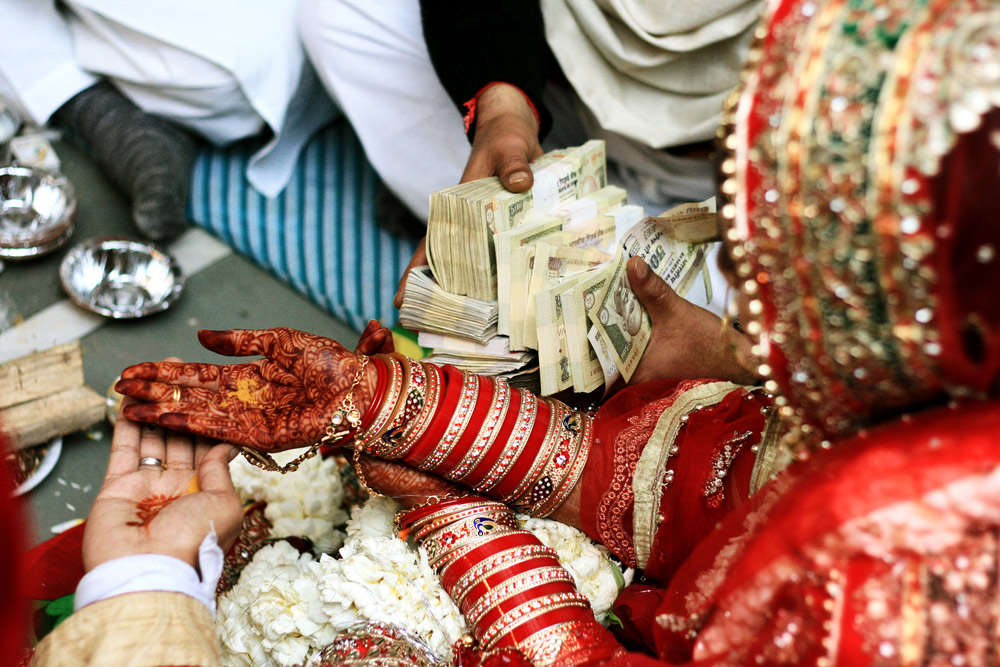In India, where patriarchy often disguises itself as tradition, the concept of dowry continues to thrive, quietly normalised, and openly celebrated. Despite being illegal for over 60 years, the giving of expensive gifts, cash, gold, and even luxury cars to the groom’s family is still treated as a matter of pride and status. No one questions how much was ‘given’; in fact, the more lavish the dowry, the more ‘respectable’ the bride’s family is considered.
But flip the narrative. The moment a woman seeks alimony, a legal right designed to ensure financial stability after divorce, everything changes. She’s labelled as greedy, manipulative, or immoral. Her intentions are questioned, and a society that once praised her for ‘adjusting’ is now quick to vilify her for standing up for her basic rights.
As conversations around dowry vs alimony grow louder, it’s time we ask the uncomfortable questions: Why is dowry, an illegal practice, still normalised, while alimony protected by law, is shamed? Why does society glorify male entitlement but resist female empowerment?
To understand this contradiction better, we looked at the data and spoke to a legal expert who breaks down the law, the loopholes, and the mindset that continues to fail women.
Dowry vs Alimony
According to NCRB 2022 data, India reported 13,479 cases under the Dowry Prohibition Act and *6,450 dowry deaths, that’s nearly 18 women every day in 2022. Even as the numbers show a slight decline, the scale remains staggering. Yet, there’s little public rage, no hashtags, no outrage, no panel debates. In contrast, one tweet about alimony, and the comments section fills up with men calling it a scam or an abuse of the system.

Dowry vs Alimony: What the Law Actually Says
Section 2 of the Dowry Prohibition Act clearly defines dowry as any property exchanged in connection with marriage, and demanding it is a criminal offence. We asked Rytim Vohra Ahuja, Senior Associate at Karanjawala & Co., to break it down. She told us, “Dowry is punishable because it promotes patriarchal norms, violates Article 21 by treating women as transactional property, and often leads to gender-based violence,” she says. Section 2 of the Dowry Prohibition Act clearly defines dowry as any property exchanged in connection with marriage, and demanding it is a criminal offence.
Alimony, however, is not a favour; it’s a right. As Ahuja explains, courts assess the financial and lifestyle realities of both partners before granting it. And personal laws like the Hindu Marriage Act allow both men and women to seek alimony.
So no, it’s not one-sided. And no, it’s not a scam.
Don't Miss:5 Basic Rights LGBTQIA+ Couples Still Don’t Have in India
Why Is Alimony Viewed As A Legal Right, But Dowry Treated As A Punishable Offence?
Alimony exists to serve an important social function, to offer financial relief to a woman who has left her matrimonial home, especially in cases where she has no independent source of income or has sacrificed her career during the marriage. It ensures she can maintain a standard of living with dignity, not just bare survival. This becomes even more significant when children are involved, and the woman is also responsible for their care.
Rytim Vohra said, “In multiple rulings, the Supreme Court has reiterated that a woman’s right to maintenance is not about charity or sympathy, it’s about ensuring she can live a life of dignity, in keeping with the standard she was used to during the marriage.” The court has emphasised that ‘sustenance’ should not be reduced to mere subsistence, but should reflect the same level of comfort and well-being she had before the separation.
That said, Rytim also points out that Indian courts today do not grant alimony in a blanket manner. With changing social norms where many women now work and contribute to the household financially, courts look closely at the facts of each case. This includes a forensic analysis of both partners’ income, assets, liabilities, and even their lifestyles before arriving at a decision. If a woman is financially independent and earns a sustainable income, the court may limit or deny alimony altogether. But in cases where the woman has been financially dependant on the husband, or has given up her job or education to support the family, the law provides her the right to seek support.

In short, alimony is not a luxury, it’s a safeguard, one that recognises the unpaid labour, emotional contribution, and economic dependence that many women are subjected to in marriage.
Don't Miss:Can a Divorced Woman Opt for Surrogacy? Bombay HC Raises Bigger Questions
Why Does Dowry Kill Women But Alimony Offends Men?
Dowry deaths rarely trend, but mention alimony and you will hear endless rants about ‘gold diggers.’ The truth? Men who accept dowry with pride often cry victimhood when asked to pay alimony. Why? Because dowry maintains male privilege. Alimony challenges it.
Also, let’s talk about the favourite argument of online trolls: “Women like her don’t need alimony. She’s rich/famous/working anyway.” Sure, there are exceptions, women with money, power, and independence. But that’s not the reality for most.
And yet, these exceptions are constantly used to discredit every other woman’s struggle, as if one successful woman cancels out the systemic oppression of millions. It’s the same logic that says, “But I know a man who suffered, so women must be lying.”
Dowry vs Alimony: What Can Women Do Legally?
Rytim Vohra advises that before marriage women should:
- Keep a documented list of all wedding gifts (as per the Dowry Act)
- Save any texts or emails that suggest dowry demands
After marriage:
- Report harassment under Section 498A IPC or the Dowry Prohibition Act
- Seek alimony or maintenance under Section 125 CrPC or relevant personal laws
Rytim Vohra Ahuja stresses that alimony is not automatic as it requires proof of need, and courts investigate both parties’ financials.
Let’s stop pretending that alimony is exploitation while staying silent about dowry deaths. Because if dowry is a transaction forced on women, alimony is compensation owed to them and the difference is everything.
One is illegal because it’s based on control. The other is legal because it’s based on care. However, both are distorted by patriarchy to shame women either way. It’s time we call out the double standards for what they are.
Keep reading Herzindagi for more such stories.
Credits: Freepik

Take charge of your wellness journey—download the HerZindagi app for daily updates on fitness, beauty, and a healthy lifestyle!
Comments
All Comments (0)
Join the conversation